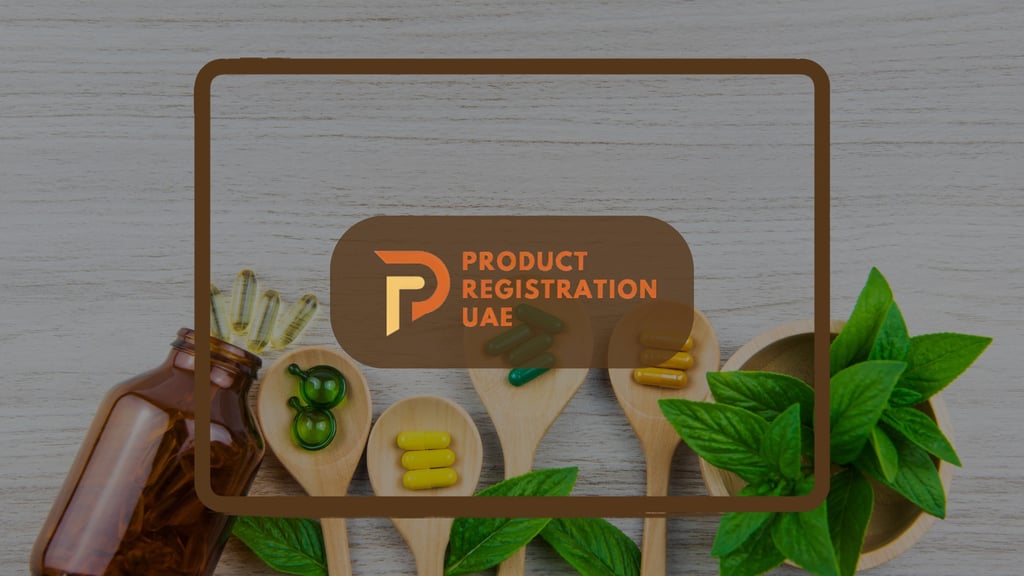Top 10 Registration Mistakes 2025
Avoid delays & rejections by learning the top mistakes in UAE supplement registration. Labeling, claims, testing & more | Product Registration UAE


Top 10 Mistakes to Avoid When Registering Supplements in UAE
(2025)
Registering supplements in the UAE can unlock major growth — but one mistake can delay your launch, lead to rejection, or even ban your product from entry.
Whether you're dealing with dietary supplements, herbal products, or functional foods, the UAE’s regulations are precise and evolving.
Here are the top 10 most common mistakes brands make during supplement registration — and how to avoid them in 2025.
1. Submitting Without Product Classification
Before anything else, your supplement must be classified correctly: Is it a dietary supplement, a functional food, a herbal product, or part of traditional medicine?
The classification determines the registration route, testing needs, and which authority handles your file (MOHAP, Dubai Municipality, or ESMA).
Failing to classify accurately causes immediate rejection or misfiling within portals like MOHAP or MONTAJI.
2. Using Unapproved or Banned Ingredients
The UAE has a restricted list of ingredients — especially for herbal and imported supplements. Ingredients allowed in the US or EU may still be banned here.
Always check:
MOHAP’s restricted and prohibited ingredient lists
GSO regulations
Limits on stimulant, hormonal, or unregulated botanical content
3. Incomplete or Poor-Quality Documentation
MOHAP and Dubai Municipality require specific, well-organized documentation:
Certificate of Free Sale
Ingredient breakdown with quantities
GMP certificate from the manufacturer
Test results from approved labs
Documents must be official, current, and translated into Arabic where required.
4. Health Claims That Trigger Instant Rejection
Many companies attempt to include phrases like “boosts immunity” or “treats arthritis.” In the UAE, health claims are strictly regulated.
Avoid:
Disease-related terms (e.g., “prevents cancer”)
Unverified functional claims
Vague or misleading language
Use only claims that align with Codex, EFSA, or approved MOHAP guidelines — and ensure the Arabic translation is equally compliant.
5. Incorrect or Non-Compliant Labeling
Supplement labels must be:
Bilingual (Arabic + English)
Structured to show MFG/EXP, batch number, warnings, dosage
Aligned with the declared ingredient list
Errors in label format, font size, color contrast, or claim placement can result in relabeling demands or outright rejection.
6. Missing Shelf-Life or Stability Data
Declaring a shelf life without stability testing is a red flag. The authorities may request:
Real-time or accelerated stability reports
Storage condition declarations
Test results from accredited labs
This is especially true for herbal and functional products sensitive to heat, light, or humidity.
7. Skipping Barcode Registration or Using Invalid Codes
Your product must carry a valid barcode — ideally GS1 — that matches the data submitted in your application.
Common mistakes:
Using expired or locally generated barcodes
Mismatch between label and registration portal
Barcode placed incorrectly or unreadable during inspection
8. Failing to Register the Manufacturing Facility
UAE authorities often require manufacturer-level documentation. This includes:
GMP certification
Site registration or approval (especially if importing)
Factory inspection reports (in some cases)
Delays happen when a factory is not pre-approved or lacks documentation.
9. Submitting Through the Wrong Portal or Category
Some supplements must be submitted via MOHAP, others via Dubai Municipality or ESMA depending on their composition, form, or target use.
Example: A cosmetic drink with health claims may need dual submission or reclassification.
Always confirm the correct path before submission.
10. Not Working With a UAE-Based Regulatory Partner
Regulations change frequently. Without local expertise, you risk delays, wasted fees, and brand damage. A qualified partner can:
Audit your documents
Translate and localize labels
Coordinate lab testing and stability verification
Guide you through portal submissions and approvals
How Product Registration UAE Helps You Avoid These Pitfalls
We provide:
Pre-classification and compliance strategy for each supplement type
Full document preparation, including Arabic translation
Label validation for bilingual compliance
Stability testing coordination and shelf-life planning
Step-by-step MOHAP, ESMA, and Dubai Municipality submission management
Our goal?
Fast, accurate approvals with zero surprises.
Continue Reading
Learn how Shelf Life & Expiry Rules UAE impacts supplement compliance from first registration to renewal.
Discover the Label Health Claim Rules 2025 to avoid common language mistakes that delay approval.
Read the full Supplement Rules & Approval UAE 2025 guide for category-specific requirements and strategy.
Not sure where your supplement fits? Learn how to classify dietary, herbal, or functional products before UAE registration begins.
Need help registering supplements in the UAE?
Chat with us in the bottom-right corner or contact our team.


